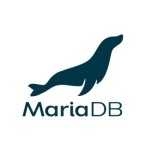What is our primary use case?
My daily tasks are related to data mining and TBICO Spotfire is one of the products that I use. We are a small group of geologists operating in a niche area who are analyzing geochemical data. Our backend database is MySQL and we use products such as Power BI, Tableau, and Spotfire to display data for the geochemists.
I perform data-related tasks such as data manipulation and creating views, then updating the database afterward, all using SQL queries. As part of this, I'm making entries as needed or corrections to data that has already been processed.
How has it helped my organization?
Essentially, I'm doing data mining with SQL queries, although I wouldn't call what I am doing Data Mining exactly, because I already know the data model. I know the geochemistry data in my head, so I already know what I'm looking for when I write an SQL query. We're not doing machine learning or AI at this point, although it may come in the future.
Every now and then, we create dashboards for the geochemists, which cover their needs from the data.
What is most valuable?
The most valuable component for me is SQL Developer. It is pretty simple to use and I don't have anything really bad to say about it. It supports multiple window displays and all of the connections are available. A lot of people use Toad for this type of work, but I have not myself.
The functionality that I use most often is querying the data model.
What needs improvement?
I would like to see an autocorrect option, where if you're typing a query and you enter a comma instead of space, or something similar, the ability for it to be able to understand based on your previous scripts would be an advantage. For example, if you were to put a comma between your AND statements then it's not going to work. Maybe a smarter application where, as you're writing queries, similar to the way that grammar and spelling are checked when you type a text message on an iPhone, it could be autocorrected.
I would like to have the ability to cancel a query in SQL Developer. Specifically, I would like to be able to cancel the query should I accidentally write one that's going to loop, or have a JOIN wrong, where you get millions of records joining with millions of records over and over again. The availability to hit cancel so that it doesn't keep running would be helpful because, when such a thing happens, then you have to shut down the whole application and you lose any queries that you might've typed before.
For how long have I used the solution?
I have been working with MySQL for approximately nine years.
What do I think about the scalability of the solution?
This application is pretty easy to scale.
Within my department, which is technical data management, approximately 75% of the people use MySQL.
How are customer service and technical support?
I have never had to deal with technical support from Oracle directly. We just raise tickets that go up and show operations, and in turn, they are the ones that deal with Oracle.
Which solution did I use previously and why did I switch?
I have used several versions of Oracle MySQL including 10, 11, and 12, and I don't really see any difference between them.
How was the initial setup?
MySQL comes pre-installed with our new PCs, so I have never been involved with the initial setup.
What about the implementation team?
On the operations side, based on what I have seen in terms of people putting in tickets for issues, it seems that we have three people who support and maintain MySQL at different levels. I feel that having this number of resources assigned to maintaining a database is wasteful.
I think that a single person can be in charge of maintaining multiple databases.
Which other solutions did I evaluate?
As a data analyst, I am not in operations and don't have a say in which products we use.
What other advice do I have?
My advice for anybody who is implementing MySQL is to ask around because there are many different ways that you can create a database now. Relational databases are no longer the best way to organize your data. It really depends on what it is that you're doing. For example, you may not need a relational database, but instead just a file structure. So, look at all of your options and speak with the experts to see what kind of database is needed before assuming that you need an RDBMS.
I would rate this solution an eight out of ten.
Disclosure: My company does not have a business relationship with this vendor other than being a customer.





















